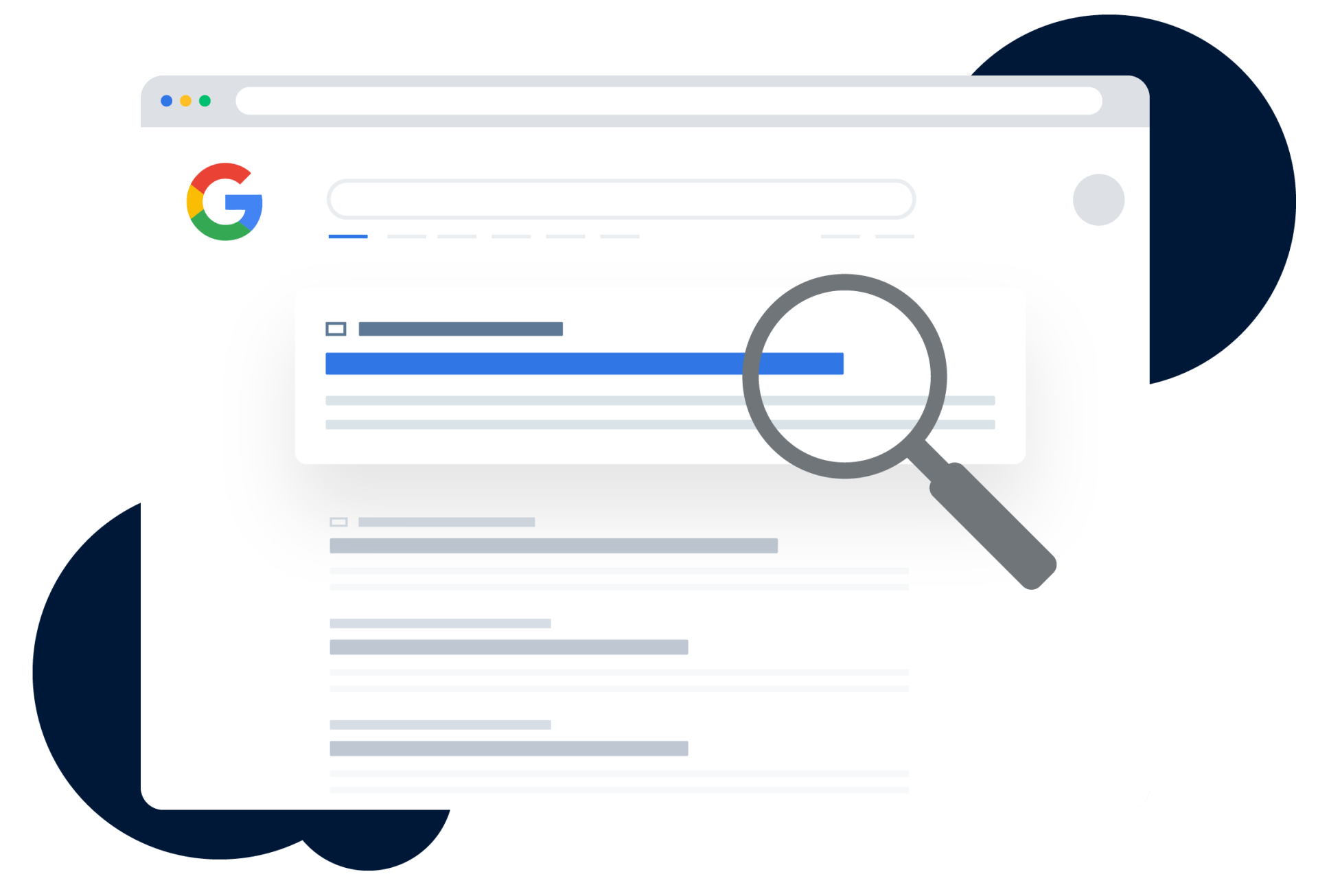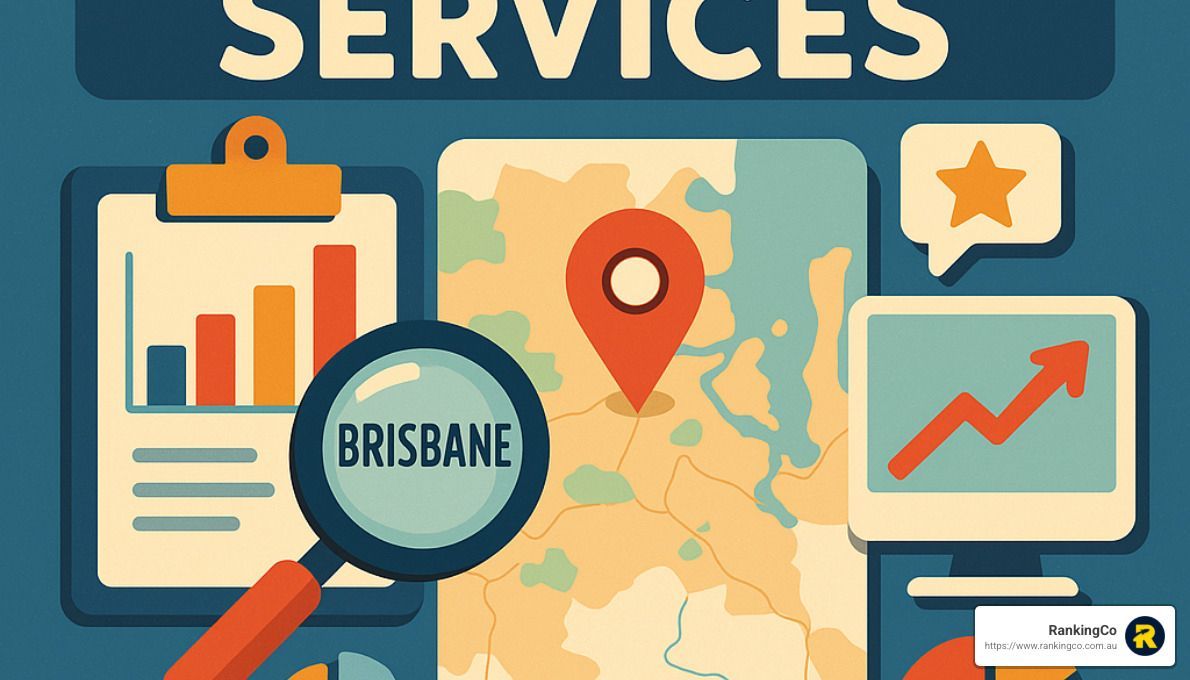The SEO Ranking Playbook: Mastering the Essentials
SEO ranking is the magic formula that determines where your website stands in search engine results. For those seeking a quick understanding of what impacts SEO ranking, consider these key factors:
- Content Quality: High-quality, engaging content is a must.
- Keywords: Use relevant keywords strategically.
- Backlinks: Links from reputable sites improve credibility.
- Page Speed: Fast-loading pages improve user experience.
- Mobile Usability: Ensure your site is mobile-friendly.
Mastering SEO ranking involves optimizing your site to meet both the expectations of search engines and your audience. This is crucial because search engines, such as Google, are increasingly tailoring results to match the user's search intent. This means understanding what your potential visitors are seeking and offering content that meets their needs.
As Kerry Anderson, co-founder of RankingCo, I've dedicated over 15 years to understanding and improving SEO ranking for businesses. My experience in digital marketing, with a focus on SEO, aligns closely with helping you optimise your site for better visibility and engagement.
Understanding SEO Ranking
To grasp the concept of SEO ranking, let's start with the basics. SEO, or Search Engine Optimisation, is all about enhancing your website to appear higher in search engine results pages (SERPs). The higher your site ranks, the more visible it becomes to potential visitors.
Google Algorithms
Google uses complex algorithms to decide which websites appear in search results and in what order. These algorithms are like secret recipes with over 200 ingredients, known as ranking factors. They are constantly updated to improve search accuracy and user experience.
The goal? To deliver the most relevant and useful results to users.
Google's algorithms consider various elements when ranking pages. These include the relevance of your content, the authority of your site, and how users interact with your pages.
Key Ranking Factors
Understanding the main factors that influence your SEO ranking is crucial:
- Content Quality: Google's algorithms favour high-quality, original content that provides value to users. Think of content that answers questions, solves problems, or entertains.
- Keywords: These are the terms people type into search engines. Using the right keywords in your content helps Google understand what your page is about. But beware of overstuffing—balance is key.
- Backlinks: Links from other reputable sites act like votes of confidence for your content. The more quality backlinks you have, the more trustworthy your site appears to Google.
- Mobile Usability: With more people using smartphones, Google prioritises mobile-friendly sites. Ensure your website is responsive and easy to steer on all devices.
- Page Speed: Users dislike waiting, and so does Google. Fast-loading pages are crucial for good user experience and higher SEO ranking.
The Role of User Intent
Google's algorithms are increasingly sophisticated, focusing on user intent. This means understanding why someone is searching and delivering results that match their needs. For example, if someone searches for "best cafes in Brisbane," they likely want a list of top-rated cafes, not a history of coffee.
SEO ranking is about aligning your content with what users are searching for. This requires knowing your audience, their challenges, and how your content can help.
In summary, mastering SEO ranking involves a blend of art and science. It's about creating valuable content, understanding Google's algorithms, and staying updated with changes. This ensures your website not only ranks well but also meets the needs of your audience.
Next, we'll dive into the key SEO ranking factors and how you can leverage them to climb the SERPs.
Key SEO Ranking Factors
To climb the search engine results pages (SERPs), focus on these essential SEO ranking factors: keywords, content quality, backlinks, mobile usability, and page speed.
Keywords
Keywords are the words or phrases people type into search engines. They help Google understand your content's topic. But it's not just about stuffing your pages with keywords. Instead, use them naturally and strategically.
Think about the words your audience uses. If you're a Brisbane café, your keywords might include "best coffee in Brisbane" or "Brisbane café reviews." Use tools like Google Keyword Planner to find popular search terms related to your business.
Content Quality
High-quality content is king. Google loves content that is original, informative, and valuable. It's not just about length; it's about relevance and usefulness.
For example, a detailed guide on "How to Brew the Perfect Cup of Coffee" can attract coffee enthusiasts. Make sure your content answers questions, solves problems, or entertains your audience.
Backlinks
Backlinks are links from other websites to yours. They act as endorsements for your site. The more reputable sites that link to you, the more credible your site appears to Google.
Consider collaborating with local bloggers or industry experts to gain backlinks. For instance, a food blogger writing about your café can provide a valuable link to your site.
Mobile Usability
With more people browsing on their phones, mobile usability is crucial. Google prioritises mobile-friendly websites. Ensure your site is responsive, meaning it adapts to various screen sizes.
A mobile-friendly site is easy to steer, with readable text and accessible buttons. Use Google's Mobile-Friendly Test to check your site's performance on mobile devices.
Page Speed
Nobody likes waiting for a slow website to load. Google doesn't either. Page speed affects user experience and your SEO ranking. Faster pages keep visitors engaged and reduce bounce rates.
Optimise images, use browser caching, and minimise code to speed up your site. Tools like Google PageSpeed Insights can help identify areas for improvement.
By focusing on these key SEO ranking factors, you can improve your site's visibility and attract more visitors. Next, we'll discuss how to improve your SEO ranking through keyword research, technical SEO, and content strategy.
How to Improve Your SEO Ranking
Improving your SEO ranking involves a mix of strategies. Let's break down some key areas: keyword research, technical SEO, user experience, and content strategy.
Keyword Research
Keyword research is the backbone of any SEO strategy. It helps you understand what your audience is searching for. Use tools like Google Keyword Planner or SEMrush to find relevant keywords for your business.
Aim for a mix of short-tail and long-tail keywords. Short-tail keywords are broader, like "coffee shop," while long-tail keywords are more specific, like "best organic coffee shop in Brisbane." Long-tail keywords often have less competition and can attract more targeted traffic.
Technical SEO
Technical SEO ensures that your website is easy for search engines to crawl and index. Even if you're not a tech expert, there are simple steps you can take:
- Optimise Page Titles and Meta Descriptions: Include keywords naturally. This helps Google understand your page content.
- Use Header Tags: Organise your content with header tags (H1, H2, H3). This makes it easier for search engines and readers to steer your content.
- Improve Site Speed: A fast-loading site improves user experience and SEO ranking. Compress images and use a content delivery network (CDN) to boost speed.
- Mobile Friendliness: Ensure your site is responsive. Use Google's Mobile-Friendly Test to check how your site performs on mobile devices.
User Experience (UX)
User experience plays a significant role in SEO. If visitors have a positive experience, they're more likely to stay on your site longer, reducing bounce rates.
- Easy Navigation: Make sure your site is easy to steer. A clean, simple menu helps users find what they need quickly.
- Engaging Content: Use visuals, videos, and infographics to make your content more engaging. 79% of people prefer watching videos over reading text!
- Clear Call-to-Actions (CTAs): Guide your visitors with clear CTAs. Whether it's "Buy Now" or "Learn More," make sure your CTAs are noticeable.
Content Strategy
A strong content strategy is essential for improving your SEO ranking. Focus on creating high-quality, relevant content that addresses your audience's needs.
- Regular Updates: Keep your content fresh. Google favours websites that update their content regularly.
- Answer Questions: Use tools like Answer the Public to find common questions in your niche. Create content that answers these questions directly.
- Internal Linking: Link your pages to each other. This helps Google understand the structure of your site and keeps visitors engaged.
By focusing on these strategies, you can improve your SEO ranking and attract more visitors to your site. Next, we'll explore tools that can help monitor your SEO performance.
Tools for Monitoring SEO Ranking
To maintain and improve your SEO ranking, it's crucial to keep track of your progress. Here are some essential tools to help you monitor and optimise your website's performance.
Google Search Console
Google Search Console is a free tool that provides valuable insights into how your site is performing on Google Search. It helps you understand which keywords are driving traffic and highlights any technical issues affecting your site's visibility.
- Performance Report: See which queries bring users to your site, and analyse your site's clicks, impressions, and click-through rates.
- Coverage Report: Identify and fix indexing problems. This ensures your pages appear in search results.
- Mobile Usability: Check how mobile-friendly your site is. With more users browsing on mobile devices, this feature is vital.
Setting up Google Search Console is a must for anyone serious about tracking their SEO ranking. It's like having a direct line to Google, showing you exactly how your site is perceived by the search giant.
SEO Checker
An SEO Checker is a tool that scans your website for potential SEO issues. These tools provide a comprehensive analysis of your site's health and highlight areas for improvement.
- Seobility SEO Checker: This tool checks your site against over 200 SEO criteria, including meta information, page quality, and link structure. It provides a score that indicates how well your site complies with SEO standards.
- Error Identification: Get a list of technical errors and suggestions on how to fix them. Prioritise tasks that will have the most significant impact on your site's performance.
By regularly using an SEO Checker, you can ensure your site remains optimised and ready to climb the search engine rankings.
Analytics Tools
Analytics tools are essential for understanding how users interact with your site. They provide insights into visitor behaviour, helping you refine your SEO strategy.
- Google Analytics: This tool tracks visitor data, such as where your traffic comes from and how users engage with your site. Use it to measure the effectiveness of your SEO efforts.
- HubSpot's Website Grader: Evaluate your site's performance based on mobile-friendliness, SEO optimisation, and more. It offers suggestions to help improve your site's user experience and SEO.
By leveraging these analytics tools, you can make data-driven decisions to improve your SEO ranking. Understanding visitor behaviour is key to refining your strategy and achieving your SEO goals.
With these tools, you'll have a clear picture of your site's SEO performance and the insights needed to make improvements. Up next, we'll tackle some frequently asked questions about SEO ranking.
Frequently Asked Questions about SEO Ranking
What is a good SEO rating?
A good SEO rating is a measure of how well your website is optimised for search engines. It reflects the quality and effectiveness of your SEO efforts. Generally, a high SEO rating means your website is more likely to rank well on search engine results pages (SERPs).
Quality standards for a good SEO rating include:
- Content Quality: Your content should be informative, engaging, and relevant to your audience. It should also include well-researched keywords.
- Technical SEO: Ensure your site is technically sound with proper indexing, fast loading speeds, and mobile usability.
- Backlinks: Quality backlinks from reputable sites can boost your SEO rating.
- User Experience: A user-friendly site with easy navigation and a clean design contributes to a higher SEO rating.
How do you check your SEO ranking?
Checking your SEO ranking involves tracking your website's position on SERPs for specific keywords. Here are some ways to do it:
- Rank Checker Tools: Use tools like SEMrush or Ahrefs to monitor your keyword rankings. These tools provide insights into your site's performance and help you track changes over time.
- Keyword Tracking: Identify the keywords that are important for your business and regularly check how your site ranks for them. This helps you understand which strategies are working and where improvements are needed.
- Manual Search: Open an incognito browser and search for your target keywords. This gives you a clear idea of where your site stands without personalised search results affecting the outcome.
What is Google SEO ranking?
Google SEO ranking is the position your website holds on Google's search results for specific queries. It's influenced by various factors, including the relevance and quality of your content, site authority, and user experience.
Google rank is determined by complex algorithms that assess:
- Relevance: How closely your content matches the search query.
- Authority: The credibility of your site, often measured by backlinks from other reputable sites.
- User Signals: Factors like click-through rate and time spent on your site can influence your Google rank.
By understanding these components, you can optimise your site to improve its position in search results. A higher Google SEO ranking means increased visibility and more potential traffic to your website.
Up next, we'll explore how to use these insights to improve your SEO ranking effectively.
Take the Next Step to Online Success
Mastering SEO ranking is crucial for any business aiming to thrive online. At RankingCo, we specialise in crafting custom digital marketing strategies that help small businesses stand out in the crowded online marketplace.
Our expertise in local SEO ensures that your business gets noticed by the right audience in your geographic area, driving more traffic and potential customers to your doorstep.
Local SEO is more than just a buzzword; it's a powerful tool that can significantly impact your business's online presence. By optimising your website for local searches, we make sure that when potential customers in your area search for services you offer, your business is among the top results. This not only increases your visibility but also builds trust with your audience as they find you easily and consistently.
Our digital marketing strategies are designed to be dynamic and adaptable. With the rapid changes in search engine algorithms and technology, stay ahead of the curve. That's why we integrate advanced AI technologies into our strategies, ensuring that our clients benefit from the latest trends and tools in the industry. This technological edge allows us to deliver campaigns that are not only effective but also set new benchmarks in performance.
By focusing on content quality, technical SEO, and user experience, we help businesses achieve a high SEO rating. Our comprehensive approach includes detailed keyword research, backlink strategies, and user-friendly design, all aimed at improving your site's ranking and driving more organic traffic.
In conclusion, partnering with RankingCo means leveraging the expertise of a team committed to your success. Whether you're a small local business or a growing enterprise, our goal is to help you achieve your digital marketing objectives and ensure your business thrives in the changing online landscape.
For more information on how we can help improve your SEO ranking, visit our SEO services page and take the first step towards enhancing your online presence.















